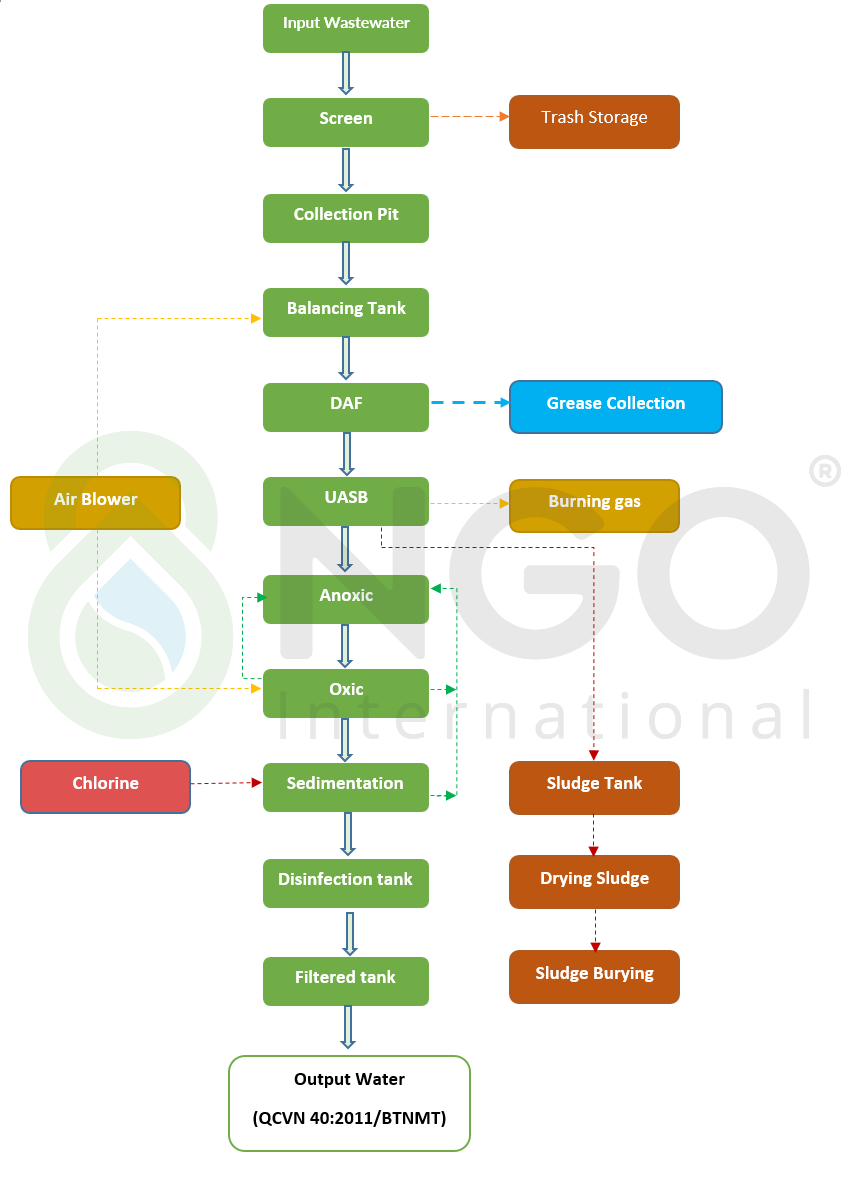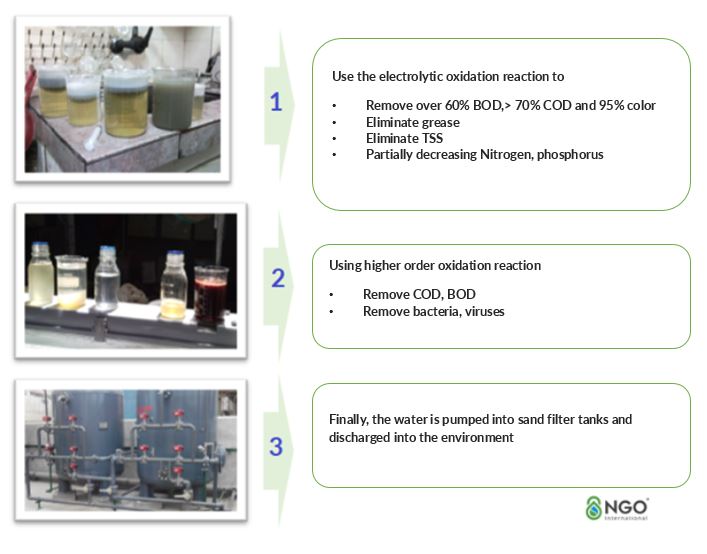SOLUTIONS TO TREATMENT OF WASTEWATER FROM SLAUGHTER
.png)
1. Composition and nature of slaughter wastewater:
All stages of the slaughtering process use water with a norm of about 5 - 15 m3/ton of cattle and this amount of water is almost completely converted into wastewater. The main sources of discharge include:
- Wastewater from slaughter process
- Wastewater from cleaning equipment and cages
- Wastewater for workers
Wastewater has the following characteristics:
- Large amount of wastewater,
- High concentration of solids (TSS), BOD, COD and
- Large amounts of nutrients including carbon, nitrogen, phosphorus, etc.
- A lot of grease
- Stench
- A lot of bacteria, mainly: Pathogenic bacteria, Coliform bacteria, microorganisms indicating the level of fecal contamination in water, sewage fungus.
2. The current popular slaughtering wastewater treatment process:
The traditional treatment process is cumbersome, the processing efficiency of each step is low, the investment cost is high and the required construction space is large.
Most of the current slaughterhouses use traditional technology but the output water quality is poor due to:
- The design does not meet the heavy pollutant load and the complexity of the wastewater.
- Not enough space
- Limited investment budget

3. Is the NGO solution better?
We have the ability to simplify processes with high efficiency, here is a successful example:
Water quality achieved
|
Wastewater before treatment |
Water quality after treatment |
|
|
|
|
|
|
|
|
If you are interested in solutions to wastewater treatment at slaughterhouse, please contact NGO by phone number (024) 3566 8225 or email office@8ngo.com for direct advice.
-
 Wastewater treatment
Wastewater treatment
-
 A standard domestic wastewater
A standard domestic wastewater
-
 B standard domestic wastewater
B standard domestic wastewater
-
 Pig Farm Wastewater
Pig Farm Wastewater
-
 Textile dyeing wastewater
Textile dyeing wastewater
-
 Paper industry wastewater solution
Paper industry wastewater solution
-
 Textile Dyeing Wastewater & Industrial Washing
Textile Dyeing Wastewater & Industrial Washing
-
 Slaughter wastewater treatment solution
Slaughter wastewater treatment solution
-
 Aquaculture wastewater
Aquaculture wastewater
-
 Starch wastewater
Starch wastewater
-
 Petroleum wastewater
Petroleum wastewater
-
 Beer wastewater
Beer wastewater
-
 Other industrial wastewaters
Other industrial wastewaters
-
 BioPM - Organic Industrial wastewater treatment solution
BioPM - Organic Industrial wastewater treatment solution
-
 MBR solutions
MBR solutions
-
 Conventional activated sludge (CAS)
Conventional activated sludge (CAS)
-
 Moving bed biofilm reactor (MBBR)
Moving bed biofilm reactor (MBBR)
-
 Anaerobic- Anoxic-Aerobic (AAO)
Anaerobic- Anoxic-Aerobic (AAO)
-
 Sequencing batch reactor (SBR)
Sequencing batch reactor (SBR)
-
 Physical & Chemical methods
Physical & Chemical methods
-
 Supply water treatment
Supply water treatment
-
 Cooling system water
Cooling system water
-
 Water treatment for food and Beverage production
Water treatment for food and Beverage production
-
 Ultra pure water supply solution for electronic industry
Ultra pure water supply solution for electronic industry
-
 Pure water supply for pharmaceutical manufacturers
Pure water supply for pharmaceutical manufacturers
-
 Water Supply treatment with ion exchange method
Water Supply treatment with ion exchange method
-
 Ordor Treatment
Ordor Treatment


